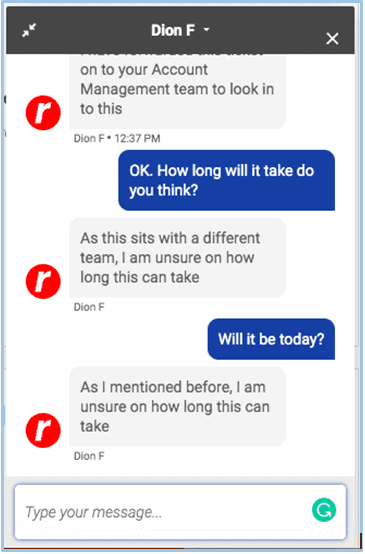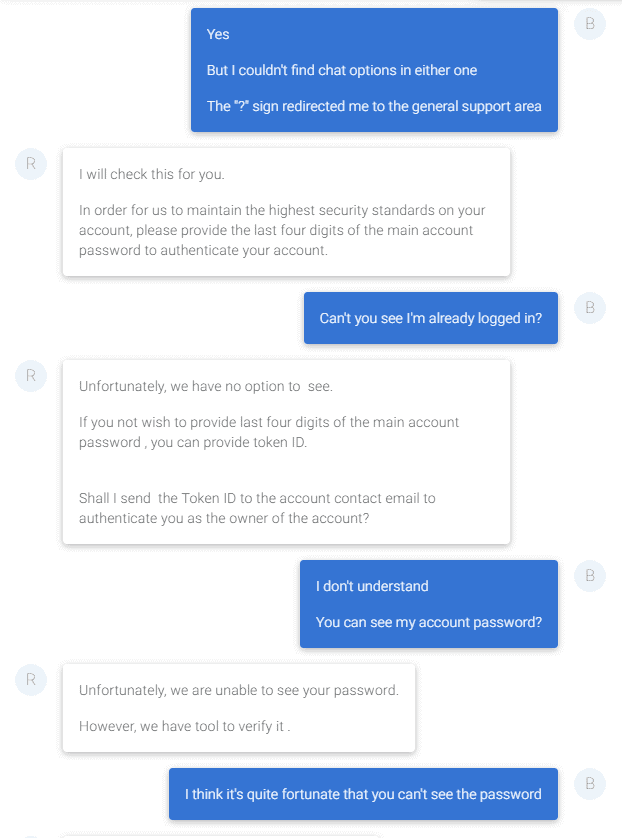Inside this Article
1. Plans and Pricing
Bluehost Is Cheaper, but Rackspace Offers Better Value When it comes to web hosting solutions for enterprises, Bluehost and Rackspace work on entirely different levels, which is clearly reflected in their pricing. For instance, while Bluehost’s three VPS options are significantly cheaper, you can only get a maximum of 4 CPU cores and 8 GB RAM on your account. Bluehost’s dedicated server plans all have 4 CPU cores and up to 16 GB RAM. Meanwhile, Rackspace gives you the freedom to add as many virtual machines as you need. Bluehost VPS Hosting
Plan NameStorageBandwidthCPURAMPrice
More detailsA free domain name is included with some hosting plans from Bluehost
Hostinger VPS Hosting
Plan NameStorageBandwidthCPURAMPrice
More detailsA free domain name is included with some hosting plans from Hostinger
2. Features
Rackspace Goes the Extra Mile, Bluehost Keeps It Basic Bluehost claims to provide “unprecedented features” for its VPS and dedicated server plans. However, when you take a look at the included features, like SSL certificates, root access, and 24/7 support, there’s really nothing that makes Bluehost stand out. The Rackspace cloud, on the other hand, puts powerful features at your disposal, but the issue here is that everything will cost you extra. From SSL support to CDNs (content delivery networks), backups, migration, managed support, and more resources, Rackspace is a fully customizable service that puts everything you might need at your disposal. If and when you decide to add a new feature to your plan, Rackspace does all the integration work for you. Compare this to Bluehost’s idea of scalability, which only includes adding more storage space to your VPS plans.| Feature | Rackspace | Bluehost |
|---|---|---|
| Hosting Type | Managed cloud hosting, managed dedicated servers | Shared hosting, WordPress hosting, VPS hosting, dedicated servers |
| Free Domain | No | Yes, for one year |
| Disk Space | 100 GB to 50,000 GB on cloud | 30 GB to 120 GB on VPS, up to 5 TB add-on |
| Bandwidth | Up to 50,000 GB on cloud | 1 TB to 3 TB on VPS |
| Automatic Backups | Available for an additional fee | Yes |
| Control Panel | Proprietary cloud control panel | cPanel |
| Free CDN | No | No |
| Free Site Migration | No | No |
3. Performance
Rackspace Has the Infrastructure, Bluehost Makes No Promises Bluehost has a single data center but chooses to keep its location a secret, which means you won’t even know where your website is hosted. Rackspace, on the other hand, lets you choose where your site is hosted. Its own infrastructure includes 14 data centers distributed across the US, South America, Europe, Asia, and Australia. If you’re looking to expand your server location options, consider integrating Rackspace with various infrastructures like AWS (Amazon Web Services), GCP (Google Cloud Platform), Microsoft Azure, and more. Rackspace will handle the integration process and the management of these services on your behalf. Rackspace has a 100% uptime guarantee, while Bluehost makes no promises regarding the reliability of its servers.
Bluehost scored poorly in our performance tests. To find out how this might affect your website, read our expert Bluehost review.
Rackspace’s performance depends entirely on the custom plan you build. You can read more about our experience with this provider in our in-depth Rackspace review.
4. Security
Rackspace Minimizes Your Risk, Bluehost Doesn’t Get Involved Like with all other features, Bluehost keeps things basic when it comes to security. You do get an SSL certificate for free, but unless you pay extra for its SiteLock malware scan, your website is essentially exposed. Rackspace goes the opposite way and provides security experts who can work with you to establish whether your website is vulnerable. The provider then creates a plan to improve your security and, for an extra fee, does everything for you. Overall, there is no doubt that Rackspace is far more likely to keep your website safe, but this premium service will cost you.5. Support
Rackspace Caters to Its Customers – Bluehost’s Support Is Sketchy Rackspace offers 24/7 phone, email, live chat, and ticket support, as well as a knowledge base with lots of tutorials and how-to articles. I didn’t have the best experience with Rackspace’s live chat support, but since I wasn’t a paying customer yet, that’s not really surprising. Rackspace boasts about its “fanatical support,” and thoroughly caters to its customers, so your experience as a customer should be much better.

When the Service Doesn’t Fit, Keep Looking
While it is true that Rackspace doesn’t have any shared hosting options and is for a very specific, high-end audience, it’s still better than Bluehost and its stunning lack of standout features. In just about every way, you’re much better off with an affordable and reliable service like Hostinger. As you weigh your options, bear in mind that there are better alternatives to both Rackspace and Bluehost. Neither of these two hosts made it into our top 10, but you can read our list of the best hosting services to find out which ones did.Rackspace
Bluehost
Plans and Pricing
More expensive than Bluehost, many added fees
Average prices for VPS and dedicated hosting, very little value
Features
A wide range of performance and security features, but for a cost
SSL included on all plans
Performance
Choose your own data center, 100% uptime guarantee
Cannot choose your data center, no uptime guarantee
Security
Security experts help you identify and fix vulnerabilities for a premium fee
SiteLock security available for an extra fee
Support
24/7 support via email, tickets, live chat, and phone; knowledge base
24/7 support via live chat, ticket, and phone; knowledge base








![8 Best Enterprise WordPress Hosting (Scalable & Reliable) [2025]](https://dt2sdf0db8zob.cloudfront.net/wp-content/uploads/2024/11/Best-Enterprise-WordPress-Hosting-1.png)
![8 Best Enterprise WordPress Hosting (Scalable & Reliable) [2025]](https://dt2sdf0db8zob.cloudfront.net/wp-content/uploads/2023/05/Caitlin-Greyling-150x150.jpg)






